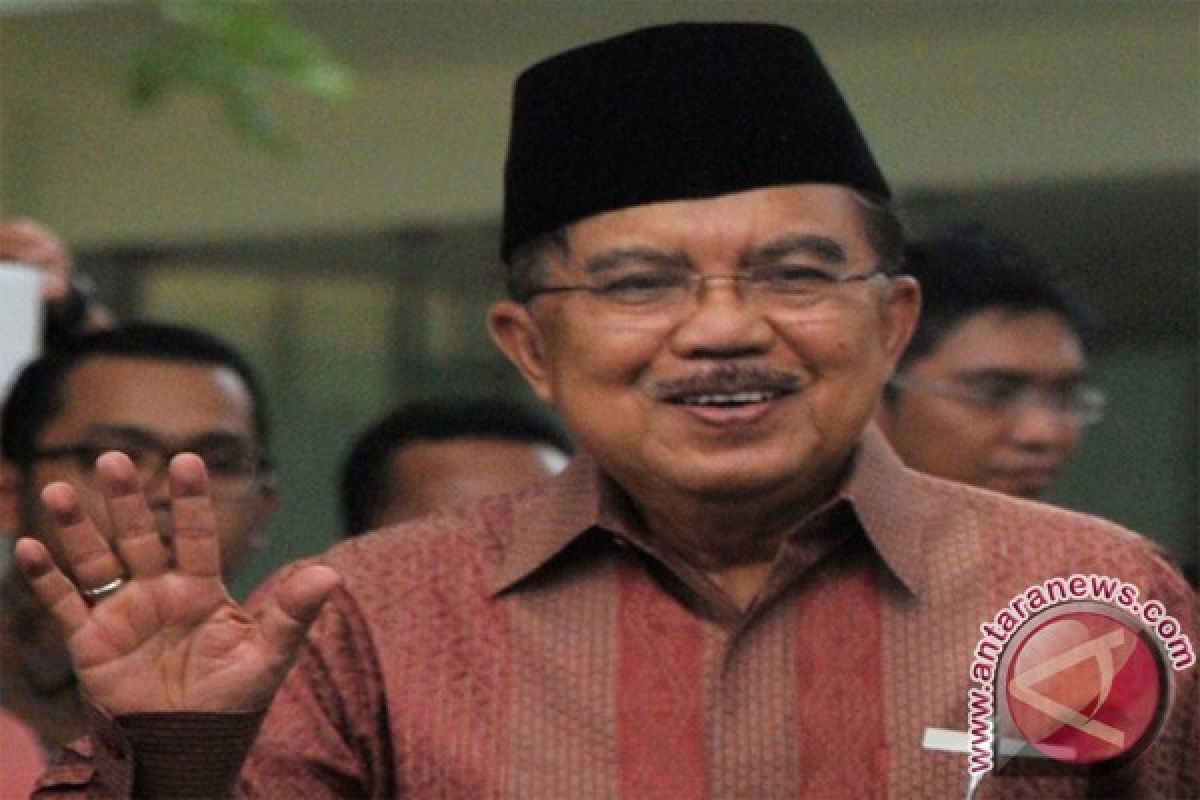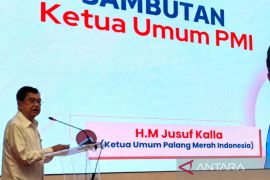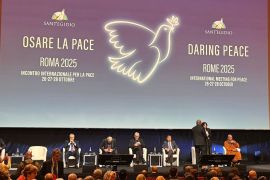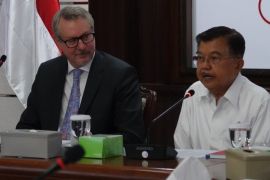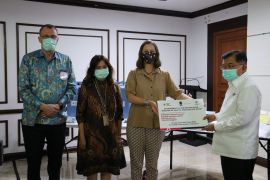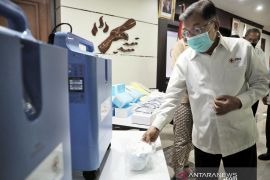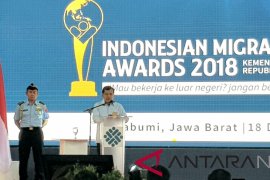If corruption is considered a serious crime, the sentence levied for it must be harsh."Jakarta (ANTARA News) - Remission is part and parcel of a sentence, Vice President M. Jusuf Kalla said here on Wednesday.
He made the statement in response to the current public debate over corruption convicts being granted remission following a remark made recently by Justice Minister Yasonna Laoly.
"Corruption prisoners are eligible for remission. If corruption is considered a serious crime, the sentence levied for it must be harsh. However, remission is part of the sentence itself," he explained.
He added that those who were convicted and served time in jail must have followed the rules in place.
"Those (corruption convicts) who are in jail have, certainly, served their sentences and followed regulations in place, making their status equal to those of other prisoners," Kalla pointed out.
Justice Minister Yasonna Laoly recently stated that he planned to revise Government Regulation Number 9 of 2012 regarding the criteria for granting remission in extraordinary cases.
His plan includes the extension of remission to prisoners convicted of corruption under the authority of his ministry.
According to Government Regulation Number 99 of 2012, prisoners involved in corruption, narcotics and terrorism are not entitled to remission.
Noting that there has been clear discrimination in granting remission to these prisoners, Laoly urged that no other institution be involved in granting remission.
"Remission should be granted fairly as it is one of the rights of prisoners," he remarked.
Moreover, the idea has drawn a lot of protest from advocates of anti-corruption.
Chief of the Setara Institute, Hendardi, emphasized that the government must not easily extend remission to corruption prisoners as it would hurt the sense of justice of the community.
Although prisoners have the right to remission, he said that reducing the sentence imposed on corruption prisoners would hurt the communitys sense of justice.
"Remission and parole should not be granted easily. The right must only be given based on high accountability to ensure that they do not harm people," Hendardi cautioned.
Furthermore, the Anti-Corruption Study Center of the state University of Gadjah Mada in Yogyakarta also urged the government to not give remission easily to corruption convicts.
"If conditions (to be eligible for remission) are relaxed, it is feared that the sentence would not serve as a deterrent," director of the center, Zainal Arifin Mochtar, affirmed.
He accused the justice minister of failing to understand the essence of the governments regulation, referring to his idea to revise Law Number 99 of 2012 to give remission and parole to corruption prisoners.
"The justice minister has failed to understand the substance of the government regulation because it does not violate any right of prisoners," Mochtar stressed.
He expressed hope that the government would not easily extend remission to corruption prisoners, but would, instead, tighten requirements that make them eligible for it.
"If the requirements are too flexible, the sentence will not have a deterrent effect on corruption convicts, and the commitment of President Joko Widodo towards eradicating corruption could be questioned," he stated.
(Reporting by Fransiska Ninditya/Uu.H-YH/INE/KR-BSR/A014)
Editor: Priyambodo RH
Copyright © ANTARA 2015
